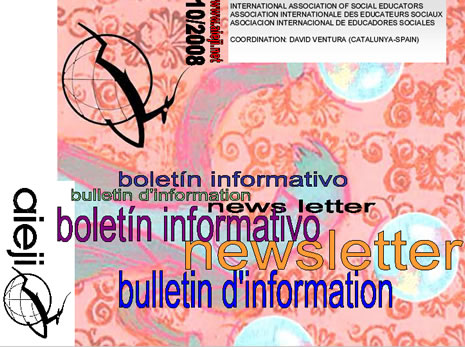This document was recently circulated to AIEJI members as a Newsletter, but we believe that its contents are a significant contribution to the current debate about social pedagogy / social education and we have therefore obtained permission to reprint. We have not edited the report, but are presenting it in its entirety as published by AIEJI.
AIEJI
AIEJI was founded in 1948 as an association for social pedagogues / educators working with disturbed children. Its original title was Association Internationale pour l’Education de la Jeunesse Inadaptee. Some years ago it decided to update its name, and it is now known in English as the International Association of Social Educators, but it retained its old initials for the sake of recognition and continuity. It has members in many countries but only a handful in the United Kingdom, presumably because of the historical dearth of social pedagogues / educators in the country.
Social education and social pedagogy
It should be noted that AIEJI decided to use the terms social education and social educators, whereas in many European countries and in current discussions in the UK the terms social pedagogy and social pedagogues are in use. Although these words have different meanings in the ways in which they are applied in different countries, they should be treated as being interchangeable in considering this report.
In the UK, the Radisson Report chose to refer to social education, as reflected in the title of the Social Education Trust. Part of the reasoning was that pedagogy had rather stuffy historical overtones and it was thought that it would be unacceptable. On the other hand, there were other established meanings for the term social education, and so the use of the term could cause confusion in the UK.
The report
The attached AIEJI report contains an introduction by Benny Andersen, the President of AIEJI, a description of the training needs of social educators, an analysis of the competences of the role, a section on ethical guidelines and ends with the Montevideo Declaration about social education, which was previously published.

